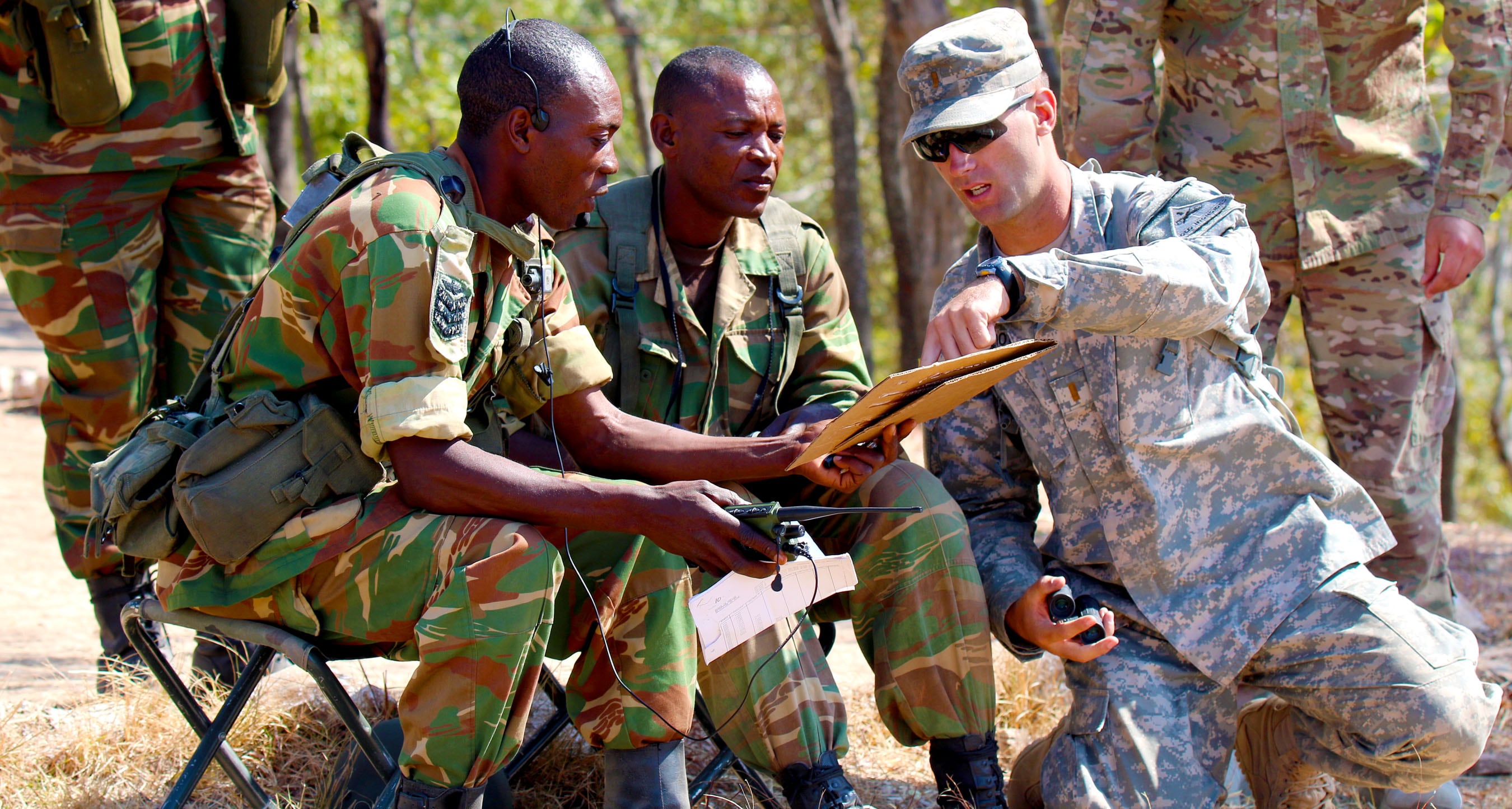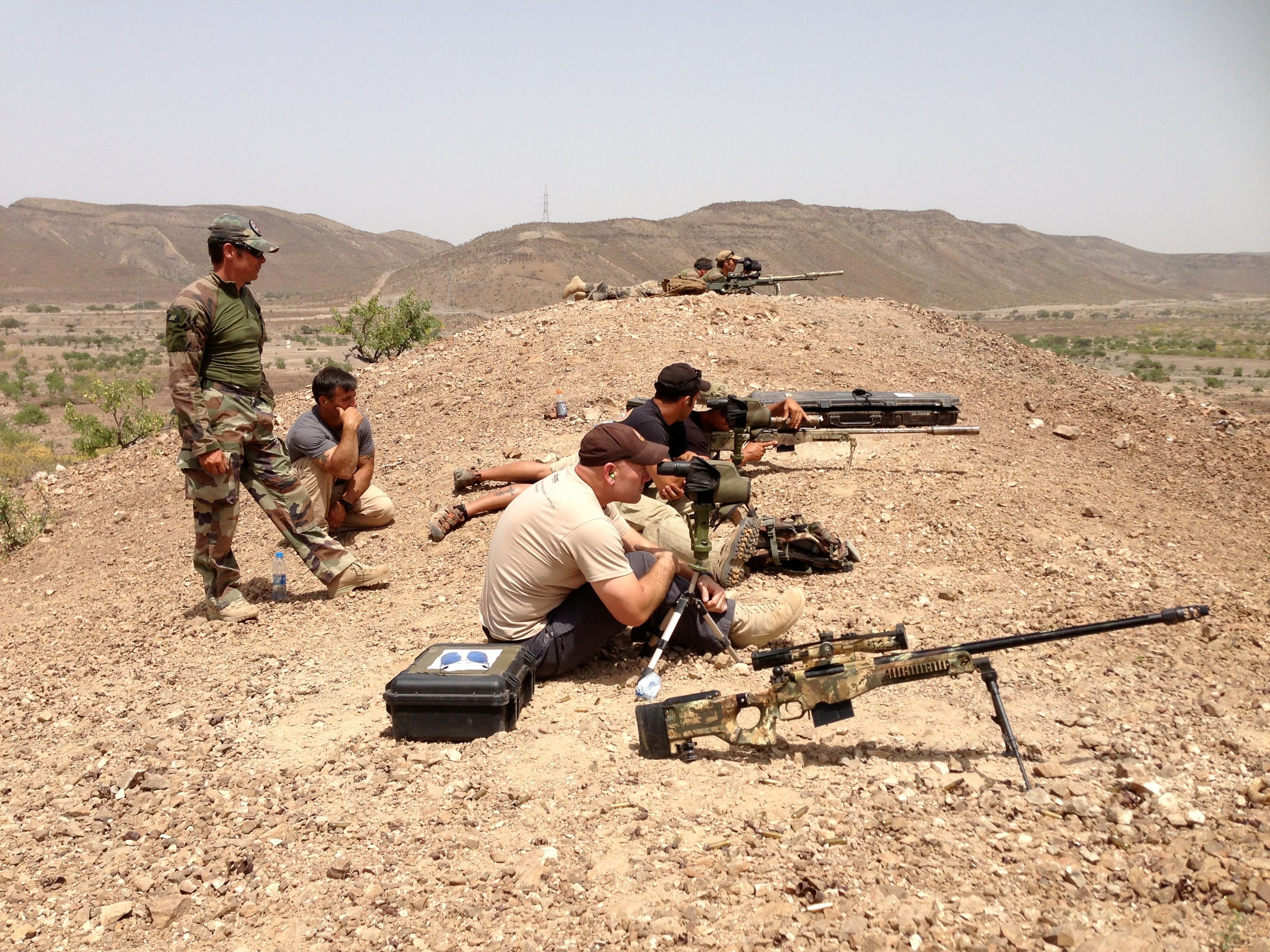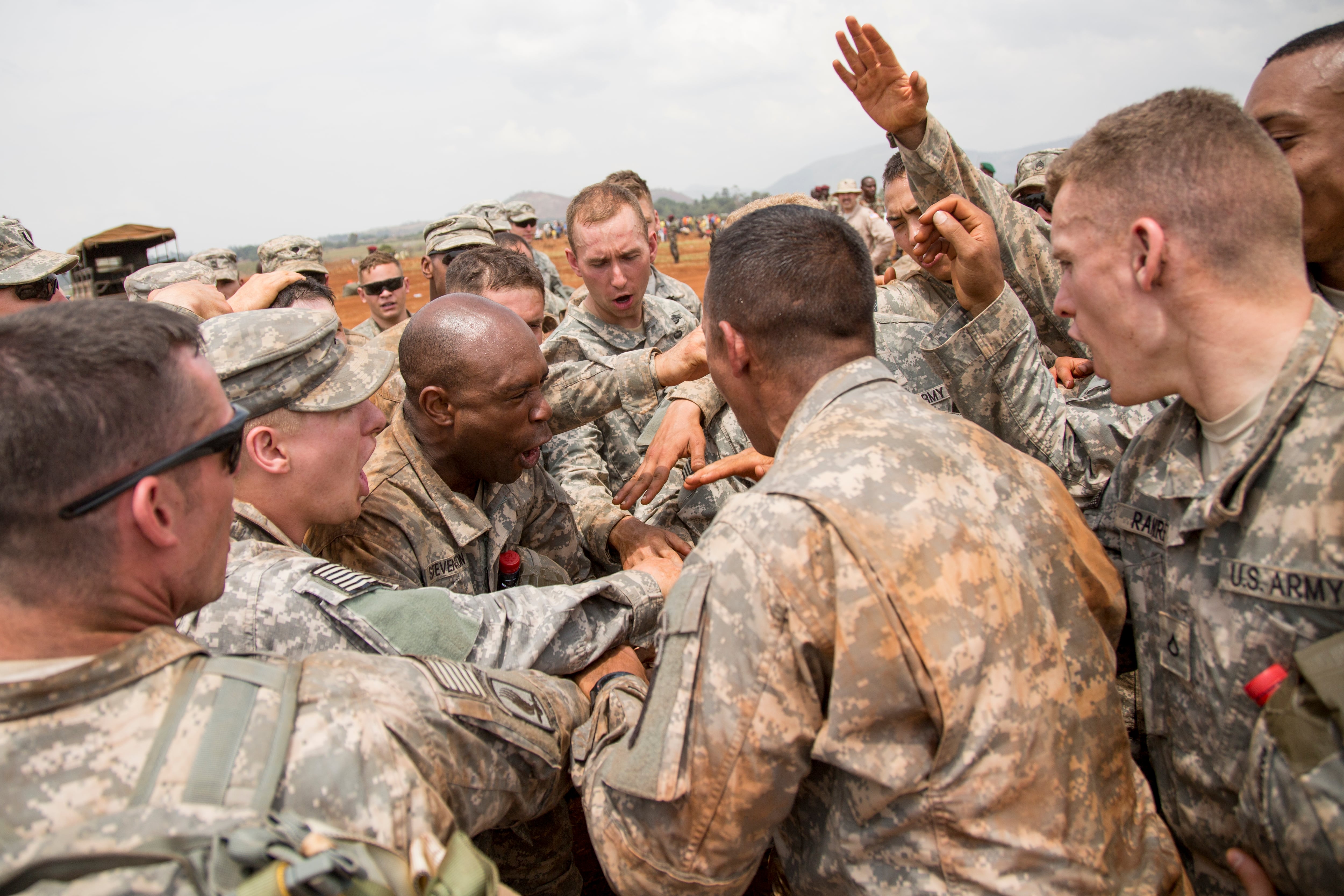With 54 countries and more than 2,000 languages in its area of operations, U.S. Army Africa has launched a new program to synchronize its training and partnership efforts across the continent.
African Horizons is "our strategy from a bilateral or multilateral standpoint for how we deal with our African partners," said Maj. Gen. Darryl Williams, commanding general of U.S. Army Africa.
Under the leadership of U.S. Africa Command, the Army has taken on a regional approach to working with the expansive African continent, Williams said.
"African Horizons is how we knit those regions together," he said, and it encompasses everything from small military-to-military engagements to the annual regional Accord series exercises.
There are about 2,000 soldiers serving in Africa at any given time, Williams said. They could be conducting an exchange with the Ethiopians or building a logistics school in the Democratic Republic of Congo. About 800 of them are in Djibouti serving as part of Combined Joint Task Force-Horn of Africa.

U.S. and Zambian soldiers conducted Southern Accord 2015 in Lusaka, Zambia in August. Much of the Africa mission is focused on training alongside foreign militaries.
Photo Credit: Staff Sgt. Michael A. Simmons/Africa
Army Africa relies heavily on regionally aligned forces, who rotate in and out of the continent to conduct a variety of missions and exercises, Williams said. The work these soldiers do is critical, as Africa faces a growing terrorist threat.
In East Africa, the top priority is containing Al-Shabaab, a Somali-based militant group with ties to al-Qaeda, while the threat in Central Africa is Islamic extremist group Boko Haram. The Islamic State terror group is an emerging threat in the north, Williams said.
"Those are the three major fights, if you will," he said, adding that AFRICOM is the controlling headquarters for all major operations against those groups.
Army Africa, for its part, focuses on "building African capacity to the left of that," Williams said.
"We in the Army service component command build partnerships through time," he said. "It takes time, and hopefully these partnerships enable our African partners to defeat these threats."
The unit currently aligned with Army Africa is 2nd Brigade Combat Team, 3rd Infantry Division, which is a good fit for "infantry-centric Africa," Williams said, adding "we have more that are coming on board. We're very, very excited about that."
This includes the sustainment brigade from the 10th Mountain Division, elements of a signal brigade from California, and the 207th Military Intelligence Brigade, which will be stood up in the coming months, Williams said.

U.S. and French special forces conduct sniper training Djibouti.There are about 20,000 soldiers serving across Africa.
Photo Credit: Army
"The Army's been very gracious to allocate to me forces over this next year," he said. "We're very, very happy with the regionally aligned forces. They're a tremendous multiplier."
The visiting soldiers will get good training while they're in Africa, Williams said.
"I always say we're a leadership lab," he said. "Africa will provide the opportunity to keep soldiers trained and improve their leadership skills."
There are four major exercises each year in Africa — Western Accord, Central Accord, Southern Accord and Eastern Accord.
"That's where we partner with all of our army partners in each region," Williams said.
For example, all of the East African armies will come together for Eastern Accord, he said.
"We're building capacity," Williams said. "We're getting as much out of it as they do, building field craft, training in austere conditions. That's how you build readiness, by putting them in tough, austere conditions where they can improve their lethality and agility. That is what's going to increase the military's ability to operate in tough environments."
Williams said he is always looking for new opportunities to train and work with partner armies. One way is through the African Land Forces Symposium, which took place in Senegal last year. This year's symposium will be in Tanzania.
"The ALFS conference allows me to meet all of [the army leaders] very, very quickly, speed-dating, if you will, and figure out ways to partner with them," Williams said.
Outside of the Accord series of exercises, Army Africa conducted about 350 activities in the past year, Williams said.
Army Africa works with its partners to "meet them where they are," he said. Each country has different needs or focus areas, he said.

U.S. Army paratroopers with the 173rd Infantry Brigade Combat Team (Airborne), bring it in for a cheer after conducting airborne operations during Central Accord 2014 in Cameroon, Africa.
Photo Credit: Staff Sgt. Kaily Brown/Army
Senegal, which has seven training centers, "everything from the desert to the mountains," often asks for help with improving their ability to run those centers, Williams said. The Ugandans may ask for training to hone their ability to get to the fight, as they struggle with an internal transportation capability.
The Army recently helped build a sergeants major academy in Malawi, and is working with Kenya and Cameroon on military intelligence.
Army Africa partners with the State Department as it trains African troops for United Nations peacekeeping missions, he said. The command also relies on the National Guard's State Partnership program, which pairs a state's Guard with the armed forces or equivalent force of a partner country, Williams said.
There are at least a dozen partnerships with African countries. For example, North Dakota is partnered with Benin, Ghana and Togo; North Carolina partners with Botswana; California with Nigeria; Vermont with Tunisia; and Michigan with Liberia.
The Massachusetts Guard and Kenya signed a state partnership agreement just this month, during a ceremony Oct. 1.
In the coming months, Williams said he will focus on continuing the work of Army Africa as it supports AFRICOM.
"We'll always be a part of the joint force, but I'm always looking at building partnerships," he said. "My vision is long-term strategic effects on the continent of Africa. There's always going to be the need left of decisive action to partner with our African teammates."
Michelle Tan is the editor of Army Times and Air Force Times. She has covered the military for Military Times since 2005, and has embedded with U.S. troops in Iraq, Afghanistan, Kuwait, Haiti, Gabon and the Horn of Africa.




